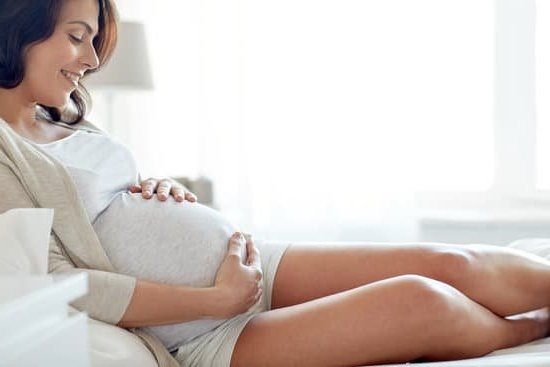Are you experiencing lower back pain early in pregnancy? This common symptom can often cause concern for expectant mothers. Understanding the early stages of pregnancy and the associated symptoms is essential for managing your health during this crucial time. From recognizing normal back pain to seeking medical help when necessary, it’s important to be informed about lower back pain in early pregnancy.
Early pregnancy encompasses the first trimester, which typically lasts from conception to week 12. During this time, various changes occur in a woman’s body as it prepares for the growth and development of a baby. Along with these changes come a myriad of symptoms that may indicate pregnancy, including nausea, fatigue, and lower back pain.
Lower back pain is among the most common symptoms experienced by women in early pregnancy. The causes of this discomfort can range from hormonal changes to increased pressure on the spine. Distinguishing between normal back pain and pregnancy-related pain is crucial for ensuring you receive the appropriate care and support during this delicate period. Understanding the nuances of lower back pain in early pregnancy will empower you to make informed decisions about managing your symptoms effectively.
Common Symptoms of Early Pregnancy
During the early stages of pregnancy, women may experience a range of symptoms as their bodies undergo significant changes. It’s important to be aware of these symptoms as they can help in identifying a possible pregnancy and seeking appropriate medical care. Here are some common symptoms of early pregnancy:
- Missed periods
- Nausea and vomiting (morning sickness)
- Increased urination
- Swollen or tender breasts
- Fatigue
In addition to these well-known signs, many women also experience lower back pain early in their pregnancy. This discomfort can be caused by a variety of factors related to the changes occurring in the body, and it’s essential to understand how to manage and alleviate this type of pain.
The causes of lower back pain in early pregnancy can be attributed to several factors such as hormonal changes, weight gain, and shifts in posture. The release of relaxin hormone during pregnancy causes ligaments and joints to relax, which can result in increased stress on the muscles supporting the lower spine.
Additionally, the growing uterus can put pressure on the lower back and pelvic area, leading to discomfort. Knowing how to differentiate normal back pain from pregnancy-related pain is crucial for expectant mothers.
Causes of Lower Back Pain in Early Pregnancy
During early pregnancy, many women experience lower back pain, a common symptom that can be caused by a variety of factors. Understanding the causes of this discomfort can help expectant mothers manage and alleviate their symptoms more effectively.
Changes in Hormones
One of the primary reasons for lower back pain in early pregnancy is the hormonal changes occurring in the body. In particular, the hormone relaxin increases during pregnancy to relax the muscles and ligaments in the pelvic area in preparation for childbirth. This relaxation can lead to instability and strain on the lower back, resulting in discomfort and pain.
Weight Gain
As a woman’s body prepares to support a growing fetus, she may experience weight gain, placing additional stress on the spine and lower back muscles. The shift in her center of gravity due to this extra weight can cause strain on the lower back, leading to pain and discomfort.
Posture Changes
During pregnancy, changes in posture are common as the body adjusts to accommodate a growing belly. This shift in posture can result in increased pressure on the spine and lower back muscles, contributing to pain and discomfort. Additionally, as the uterus expands, it may put pressure on certain nerves that radiate from the spine to the lower back, causing further discomfort.
Understanding these common causes of lower back pain early pregnancy can help women take proactive steps to manage their symptoms effectively and seek appropriate medical care when necessary.
How to Distinguish Normal Back Pain From Pregnancy-Related Pain
During early pregnancy, it is common for women to experience lower back pain as their body undergoes significant changes to accommodate the growing fetus. However, it is important to be able to distinguish between normal back pain and pregnancy-related pain in order to ensure the well-being of both the mother and the baby.
Normal Back Pain
Normal back pain may be caused by a variety of factors such as poor posture, excessive standing or sitting, or rigorous physical activity. This type of back pain is typically mild to moderate in intensity and can be alleviated with rest, proper body mechanics, and over-the-counter pain relievers if necessary.
Pregnancy-Related Pain
Pregnancy-related lower back pain is often more pronounced and concentrated around the lower spine and pelvic region. This type of pain may also be accompanied by other symptoms such as pelvic pressure, cramping, and discomfort while walking or changing positions. It is important to note that pregnancy-related lower back pain may also be linked to conditions like sciatica, which can cause shooting or radiating pain down the legs.
Seeking Professional Advice
If you are experiencing lower back pain early in your pregnancy and are unsure whether it is normal or related to your pregnancy, it is crucial to consult with your healthcare provider. They can help determine the cause of the pain and provide appropriate recommendations for managing it effectively while ensuring the safety of both you and your baby.
Understanding how to differentiate between normal back pain and pregnancy-related discomfort can help expectant mothers better manage their symptoms and seek appropriate care when necessary. By staying mindful of these distinctions, pregnant women can take proactive steps towards maintaining their overall well-being throughout this transformative time.
Tips for Managing Lower Back Pain in Early Pregnancy
Lower back pain is a common symptom experienced by many women in the early stages of pregnancy. This discomfort can be caused by a variety of factors, including hormonal changes, weight gain, and changes in posture. While it can be frustrating and uncomfortable, there are several tips for managing lower back pain during early pregnancy.
One of the most effective ways to manage lower back pain in early pregnancy is through exercises that strengthen the muscles supporting the lower back. Prenatal yoga and gentle stretching exercises can help ease tension in the back and improve flexibility. Additionally, maintaining good posture and practicing proper body mechanics can also alleviate pressure on the lower back.
In addition to exercise, using supportive pillows while sitting or sleeping can help relieve lower back pain during early pregnancy. A maternity pillow or other types of specialty pillows designed to support the body’s changing shape can provide much-needed relief. Heat therapy, such as using a heating pad or taking a warm bath, can also help relax sore muscles and reduce discomfort.
It is important to remember that if you are experiencing lower back pain early in your pregnancy, it is essential to check with your healthcare provider for guidance on safe management techniques. Certain treatments and medications may not be suitable for pregnant individuals, so seeking professional advice is crucial for ensuring both your safety and the health of your developing baby.
| Tips for Managing Lower Back Pain in Early Pregnancy | Data |
|---|---|
| Exercise | Prenatal yoga and gentle stretching exercises |
| Supportive Pillows | Using maternity pillows or specialty pillows designed for pregnancy support |
| Heat Therapy | Using heating pads or warm baths to relax sore muscles |
When to Seek Medical Help for Lower Back Pain During Early Pregnancy
If you are experiencing lower back pain early in your pregnancy, it is important to know when it is necessary to seek medical help. While some back pain is common in early pregnancy, there are certain signs and symptoms that should not be ignored. Here are some guidelines on when to seek medical assistance for lower back pain during early pregnancy:
1. Severe or Persistent Pain: If you are experiencing severe or persistent lower back pain that does not improve with rest or at-home remedies, it is important to consult with your healthcare provider. This could be a sign of a more serious issue that needs medical attention.
2. Numbness or Tingling: If your lower back pain is accompanied by numbness or tingling in your legs or buttocks, it could be a sign of sciatica or nerve compression. This should be evaluated by a healthcare professional to prevent further complications.
3. Fever or Chills: If you experience lower back pain along with fever or chills, it could indicate an infection such as a urinary tract infection (UTI) or other underlying condition that needs treatment.
In addition, if you have a history of previous pregnancy complications or pre-existing health conditions, it is advisable to consult with your healthcare provider regarding any lower back pain early in your pregnancy. Always trust your instincts and seek medical help if you feel something is not right.
Remember, seeking timely medical help can help alleviate any concerns and ensure the well-being of both you and your baby during this crucial stage of pregnancy.
Prevention and Relief for Lower Back Pain in Early Pregnancy
During the early stages of pregnancy, many women experience lower back pain. This discomfort can be caused by a variety of factors related to the physical changes that occur during pregnancy. It is important for expectant mothers to take steps to prevent and alleviate lower back pain in order to ensure their well-being and comfort throughout their pregnancy.
One common cause of lower back pain in early pregnancy is the hormonal changes that occur in the body. The hormone relaxin is released during pregnancy to help loosen the ligaments and joints in preparation for childbirth.
This can lead to instability in the pelvic region, putting strain on the lower back muscles and causing discomfort. Additionally, as the uterus grows, it can put pressure on the sciatic nerve, leading to sharp or shooting pains in the lower back and legs.
To prevent or relieve lower back pain in early pregnancy, there are several strategies that expectant mothers can employ. Engaging in regular exercise tailored for pregnant women, such as yoga or swimming, can help strengthen the muscles that support the back and improve flexibility. Using proper body mechanics when lifting or carrying objects is also crucial for preventing strain on the lower back.
In addition to exercise and proper body mechanics, practicing good posture throughout pregnancy can also aid in preventing and alleviating lower back pain. Using supportive footwear, sleeping on a firm mattress with proper positioning of pillows, and wearing a maternity support belt are additional measures that can provide relief and reduce strain on the lower back.
It’s important for women experiencing persistent or severe lower back pain during early pregnancy to consult with their healthcare provider before trying any new remedies or treatments.
| Causes of Lower Back Pain | Prevention Strategies |
|---|---|
| Hormonal changes | Regular exercise tailored for pregnant women |
| Increased pressure on sciatic nerve | Proper body mechanics when lifting/carrying objects |
| Poor posture | Using supportive footwear |
The Importance of Self-Care and Support During Early Pregnancy
In conclusion, dealing with lower back pain in early pregnancy can be challenging, but it is important to remember that self-care and support are crucial during this time. Pregnancy can bring about various physical discomforts, including lower back pain, and taking care of oneself becomes even more important.
It is essential to listen to your body, prioritize rest, and seek help when needed. Additionally, having a strong support system in place can make a significant difference in managing the symptoms of early pregnancy, including lower back pain.
It is important for women experiencing lower back pain in early pregnancy to understand that they are not alone in their struggles. Seeking support from partners, family members, friends, or healthcare professionals can provide much-needed comfort and assistance. Open communication about one’s experiences and concerns can also be beneficial in finding relief and practicing self-care effectively.
Furthermore, engaging in activities that promote relaxation and overall well-being, such as prenatal yoga or gentle exercises recommended by healthcare providers, can aid in relieving lower back pain during early pregnancy. Prioritizing self-care and seeking support can contribute to a more positive experience during the early stages of pregnancy while managing the discomfort of lower back pain.
Remember that every woman’s experience is unique – do not hesitate to reach out for guidance if the lower back pain becomes too overwhelming.
Frequently Asked Questions
What Part of Your Lower Back Hurts in Early Pregnancy?
In early pregnancy, it’s common for women to experience lower back pain due to the growing uterus putting pressure on the sciatic nerve. This can cause discomfort or aching in the lower back area.
Why Does My Waist Hurt at 14 Weeks Pregnant?
At 14 weeks pregnant, waist pain can be attributed to the expanding uterus and stretching ligaments. As the baby grows, the uterus puts pressure on surrounding organs and structures, causing discomfort in the waist area.
Why Does My Lower Back Hurt When I Lay Down Pregnant?
Lower back pain when laying down during pregnancy can occur due to changes in posture and spinal alignment as the belly grows. This places strain on the lower back muscles and may result in discomfort while lying down.

Welcome to my fertility blog. This is a space where I will be sharing my experiences as I navigate through the world of fertility treatments, as well as provide information and resources about fertility and pregnancy.





